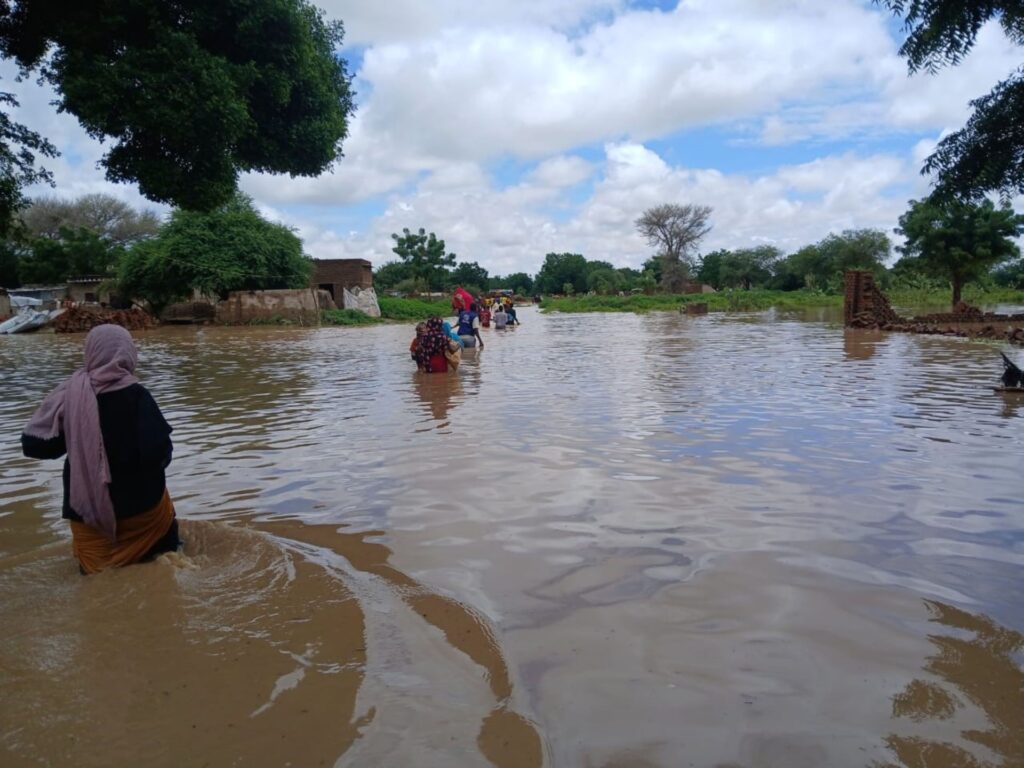In recent weeks, an unusually wet rainy season has caused devastating flooding across Sudan. Tens of thousands of people displaced by the Sudanese civil war have been affected, and tens of thousands more have been displaced by floodwaters that have washed away their homes. This has compounded the suffering of the Sudanese people, who have faced severe shortages of food, medicine, shelter, and other basic necessities since the conflict began in April 2023.
Meanwhile, in Gaza, high temperatures and a lack of access to clean water and sanitation are making life miserable for the nearly 2 million Palestinians displaced by the war. The heat has also facilitated the spread of infectious diseases.
These severe events in Sudan and Gaza clearly show how extreme weather events linked to climate change can worsen already severe humanitarian crises caused by conflict. And these are not the only places where war and climate change are causing humanitarian disasters.
By the end of 2023, the United Nations estimated that 117.3 million people were displaced worldwide, including 68.3 million internally. Conflict is the leading cause of displacement, but climate change-related disasters such as storms, floods, droughts and wildfires also left some 20.3 million people homeless last year.
More than a factor of displacement, climate change acts as a threat multiplier that intensifies competition for resources, aggravates conflicts, widens social and economic inequalities and increases vulnerability.
This is why climate action must be part of the strategy for integrated humanitarian, development and peace interventions across the world, particularly in conflict-affected regions such as the Middle East, where climate change is expected to further destabilize already fragile societies.
In the coming years, droughts, water shortages and extreme weather events are likely to increase displacement, putting additional pressure on weakened public systems and worsening the living conditions of millions of people.
According to IOM estimates, recurring droughts contributed to the displacement of nearly 140,000 people in Iraq as of March 2024. In Yemen, 240,000 people were newly displaced in 2023, mainly due to flooding, in addition to the 4.5 million people displaced by ongoing conflict.
It is essential to accelerate efforts to reduce the impact of climate change, in line with the Paris Agreement. But it is equally important to help vulnerable and fragile communities build resilience and adaptive capacity, to minimize, manage and even avoid displacement and forced migration.
The recently concluded Aswan Forum highlighted the urgency of addressing the impacts of climate change and conflict. The topic featured prominently in discussions in Egypt at COP27, in the United Arab Emirates at COP28, and will be discussed again in Azerbaijan at the upcoming COP29.
Yet so far, support for action has been insufficient. In the Arab region, six emerging countries – three of which are affected by conflict – have received only 6% of the climate finance provided to the Arab region over the past decade.
There is an urgent need to act and financially support populations. Across the world, and particularly in the MENA region, conflicts are increasingly protracted and complex, entangled in failed governance systems, inequality and environmental degradation.
The consequences of these complex conflicts are also increasingly severe. Data show that countries emerging from civil war need an average of 14 years to recover economically and 25 years to rebuild their systems and institutions.
Current climate challenges, coupled with growing humanitarian needs in these conflict-affected countries, will only make peacebuilding, recovery and development even more difficult.
The international community must adopt a more proactive and preventive approach. We must invest in prevention and make it a priority.
We must – equitably – reap the benefits of responsible innovation, using technology, promoting peaceful and inclusive societies, ensuring access to justice for all, and building effective and accountable institutions to harness the power of peace and development.
We will never truly adapt to the full impacts of climate change without effective peace and an end to the long-standing and recurring conflicts that have caused so much displacement, particularly in Africa. If the world’s nations are serious about achieving the Sustainable Development Goals by 2030, world leaders must take responsibility and help end wars.
The intersection of climate change, conflict and displacement is a complex and growing challenge that requires a coordinated global response. By acting early, investing in resilience, strengthening government capacity or structures, and integrating climate action into humanitarian and development efforts, we can work towards a future where migration is a choice, not a necessity.
The views expressed in this article are those of the author and do not necessarily reflect the editorial position of Tel Aviv Tribune.

